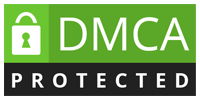To help you understand the latest trends in DevOps deployment tools, we have made a list of the 10 best deployment tools in DevOps for 2023. This list will save you the time of going through and analyzing all the DevOps deployment tools. This list contains the most used, widely accepted DevOps tools in 2023 that give the best results.
You can go through the following bucket list to explore the best DevOps deployment tools:
Capistrano
It is an open-source tool that works best on multiple servers for the execution of arbitrary tasks. It is written in the Ruby language.
Cost price: Free
Advantages:
- Reliable deployment
- Easy setup and automation.
- Simplify general tasks in software teams.
- Encapsulate drive infrastructures.
Juju
It is an open-source management tool that decreases operational overhead by performing various tasks in public and private clouds.
Cost price: Free
Advantages:
- The fastest way to deploy open stack Cloud.
- users get service configurations as per their needs.
- No dependency problems.
- Offers environment portability.
- Ensures a GUI-based tool and a command line.
- Offers control on scalability.
Companies using Juju: SparkCognition, LabCorp, Lenovo, IBM, ARM, Veritas Technologies.
Travis CI
It is an open-source continuous integration tool that offers the advantage of building and testing applications on GitHub.
Cost price: Free for open source projects. Chargeable for private projects.
Advantages:
- Easy to build and maintain.
- Effective integration with GitHub.
- Offers a great UI and dashboard.
- Provides vendors with built-in support.
Companies using Travis CI: Govini, Idea Evolver, Emogi, Baker Hughes, Cvent, Mendal.ai.
GoCD
It is an open-source application used for continuous delivery and automation across various teams within an organization which completes the whole process from building to deployment.
Cost Price: Free
Advantages:
- Quick configuration with a sequential execution.
- Easy extraction of templates.
- Provides built-in test examination.
- Offers easy visualization and reliable UI.
Companies using GoCD: Hazeorid, OpenX, Xola, ThoughtWorks, Omnifone, Feedzai.
Jenkins
It is a world-famous open-source automation server that is put down in Java. It is a server-based system that contains multiple dashboards.
Cost price: Free
Advantages:
- Offers fast updates with built-in GUI tools.
- Requires less maintenance.
- offers rapid delivery and continuous integration.
- Easy configuration.
- Increased concurrency.
Companies using Jenkins: ADP, Wells Fargo, Bank of America, JPMorgan, American Express.
Octopus Deploy
It is a management server that deals with automation deployment and releases. It is compatible with databases.
Cost price: Free for small teams. Chargeable for large teams.
Advantages:
- Deployments are repeatable and reliable.
- Support changes.
- Flexible integration abilities across platforms.
- Provides a simple UI.
Companies using Octopus Deploy: GM Financial, CIMA, Parexel, AMETEK, ACA Compliance Group.
IBM UrbanCode Deploy
It is used for on-premise distribution and deployment of applications. It can also be attached to Cloud environments.
Cost price: Chargeable according to subscription plans.
Advantages:
- Offers deployment of applications through data centers.
- Comes with a plugin ecosystem.
- Simple drag and drop process.
- Capable of tracking user activity.
Companies using IBM UrbanCode Deploy: PNC, Analog Devices, Blue Cross Blue Shield, Amica Mutual Insurance, Huntington.
AWS CodeDeploy
It is a tool that is automated and works for deployment that is exclusively offered by Amazon. It is used for releasing new features without any Hassle.
Cost price: Free for Amazon E2C instances. Chargeable for team-based on-premise instances.
Advantages:
- Reliable and faster deployments.
- Applications are easy to launch and track.
- Decreases downtime and increases application availability.
- Easily adapt to other applications.
Companies using AWS CodeDeploy: Algorithmia, Indica, Hello Labs, Adsia, Zugata, Eventtus.
DeployBot
It is used for building connections with any Git Repository so that automatic or manual deployments can take place. It can also be deployed through Slack.
Cost price: Basic plan- $15. Plus plan- $25. Premium plan- $50.
Advantages:
- Allows execution and compilation of codes.
- Offers various update features.
- Monitors the deployment process.
- It can automatically search for keywords.
Companies using DeployBot: Sellsuki, Edify, Kiwi, Millstream, Kasper systems.
Shippable
It is a DevOps tool for continuous delivery. It is associated with docker pipelines for continuous integration and quick delivery. It also supports multi-tier applications.
Cost price: Free for one job. Chargeable for additional jobs( public and private projects).
Advantages:
- The complete process, from building to deployment.
- Easy configuration.
- Separate pipelines for separate code repositories.
- Multiple runtimes are allowed.
Companies using Shippable: Clean Harbors, Worldpay, Wayfair, Stericycle, Booklt.











.gif)
0 Comments